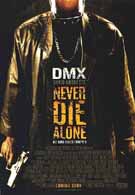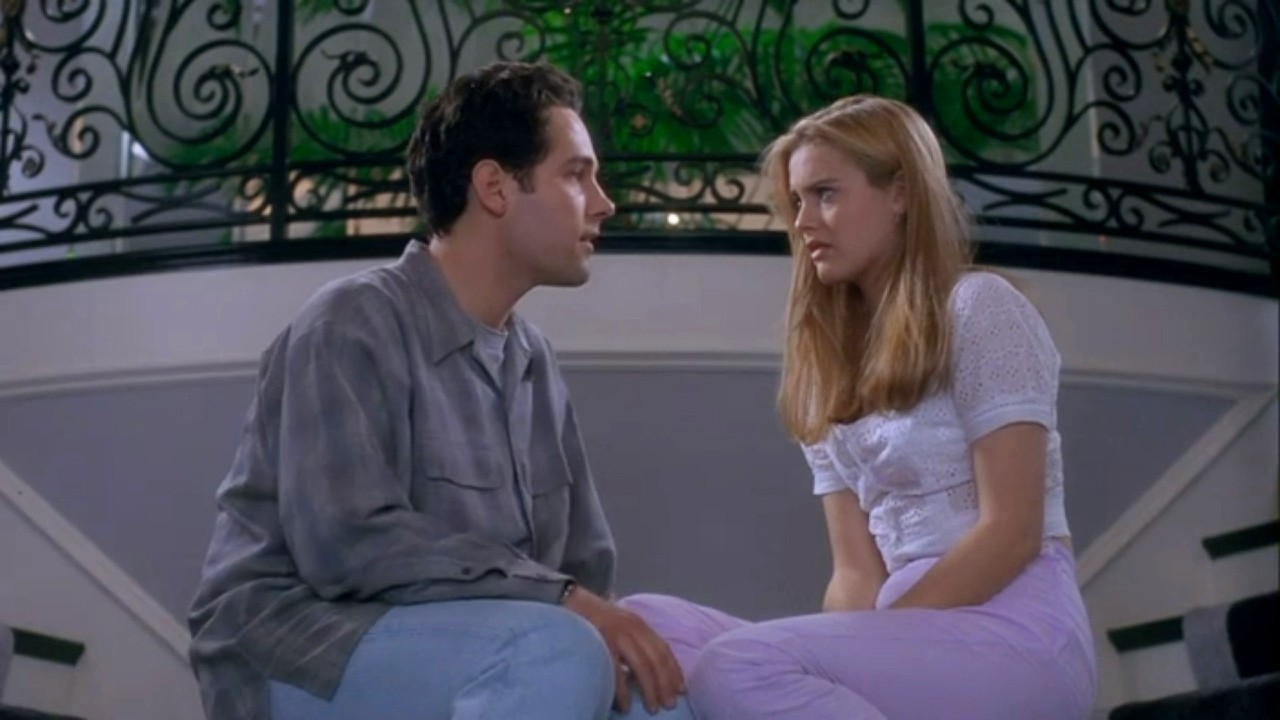Film noir and urban exploitation films have been thoroughly ignored for the better part of the past few years. Aside from a brief return to both subgenres in 2002 with Joe Carnahan’s gritty cop thriller, Narc, crime drama has become more optimistic than in the heyday of the noir and the urban cop films whose bleak outlook on life and documentary style made them what pessimists would consider an appropriate metaphor for life. Never Die Alone valiantly struggles to mark a return to the days of the glum attitude of those films, and occasionally succeeds, but its messy narrative ultimately sends it straight into the gutter.
Based on the book by cult novelist Donald Goines, Never Die Alone tells the story of King David (DMX), a flashy, aggressive ex-con who returns to his turf, seeking redemption. Upon repaying a longstanding debt to a loan shark (Clifton Powell), David accidentally ends up in a scuffle with two goons, and stabbed to death. But before he dies, an aspiring journalist named Paul (David Arquette) attempts to save him, and in doing so, David leaves him as his sole beneficiary and with audio tapes of recent events in his life that he had recorded days before. Paul devotes the next few hours to uncovering David’s secrets through his audiotapes and follows leads, ultimately writing about who he was and why he was killed. In doing so, he reflects on his own misdirected life.
From the premise and the surprise that the first-billed star is killed in the first act, you can see that Never Die Alone is unlike anything you would expect from a standard “action movie.” While the film strives to be a cut above the bargain-basement shoot-em’ ups (unlike the DMX-starring Cradle 2 the Grave or Belly), the story seems to be splattered on the screen, signifying very little.
The story awkwardly darts back and forth between the flashbacks of David’s life and the present-day events of the aspiring journalist and one of the loan shark’s goons (Micheal Ealy), who got away from the crime unharmed and is more connected to David than he realizes. All of this without a hint of transition or sense of direction. So many actions occurring at the same time leave the viewer confused, not only about what is going on, but also what it means.
King David’s life is seen as no more than a cut-and-paste rendition of Scarface (how often does an urban film refer to Scarface?), minus the years of glamour and success. He invests plenty of time ranting about how “big time” he was, is, and will be, yet he is still a bitter, miserable piranha who feeds off those he supposedly loves and offers only drugs and pain in return. Instead of a harrowing portrayal of a drug dealer, we go through the motions of drug saga clichés that were tired even a decade ago. For example, David’s primary female interest (Regan Gomez-Preston), a naïve young college student with a bright future, ditches her education in favor of a depraved drug addiction.
Yet Never Die Alone eventually brings the actions of all three plotlines together. What the viewer learns might have been the real lesson all along. This story does not want David to be seen as a misunderstood angel (though his appearance in the first shot would have you believe otherwise). What matters is the way his life impacted the lives of so many others, his death serving only as a catalyst for a chain reaction in both his allies and enemies. So lives are destroyed, empires (small ones, anyway) crumble, and no one’s path is as clear (the revelations in the final act are too intricate and surprising to spoil). All thanks to a King who’d be grinning sinfully, if only he were around to do so.











